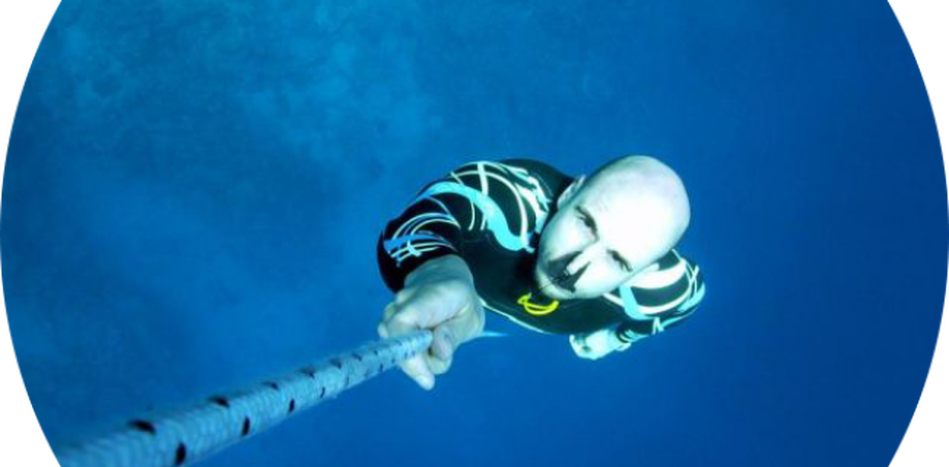
Free Diving: No Limits until the last Breath of Freedom
Published on
Every normal human being considers breathing as the most automated process in the world. We don’t even think about breathing during our days. It happens spontaneously. But breathing is an action which can be controlled and improved voluntarily, and control of your breath means control of your mind, body and feelings as well.
Interview by Tamara Miletic
Photography by Goran Colak database
Every normal human being considers breathing as the most automated process in the world. We don’t even think about breathing during our days. It happens spontaneously. But breathing is an action which can be controlled and improved voluntarily, and control of your breath means control of your mind, body and feelings as well. This is actually what free-divers do while staying under the water with one single breath to push their limits of freedom. The origins of this discipline date back to the ancient Greece, although the first record of free-diving was recorded at the beginning of the 20th Century and we had to wait until 2002 to have an official definition of the eight disciplines in free-diving with men and women competing in them. Those disciplines are certified by AIDA (International Association for Development of Apnea), the Worldwide Federation for breath-hold diving, that together with the CMAS (World Underwater Federation) are the two world associations in charge for the competitions in this field.
Mladiinfo crew had the pleasure to spoke with Goran Čolak, the Croatian athlete who broke more than 30 domestic CMAS and AIDA records and has won the Croatian free-diving championship in the last 7 years in a row. He is currently the most successful male athlete from AIDA World Championships with 6 Gold medals and one Silver medal. Čolak shared with us his motivation in pushing his limits until breaking a new record and his passion for this discipline that opens a world of sensations and feelings inside his mind and body that cannot be experienced elsewhere.
1. Where do your passions for free-diving come from?
Most of free-divers of my generation have a similar story. In 1988 there was this movie The Big Blue made by a French director Luc Besson and it was followed by increased interest in pursuing free-diving. It happen to me as well. From that point on, I started to experiment on my own with free-diving techniques and after a while I decided to become a member of the diving club “Geronimo” of Zagreb, Croatia, where I’m still practicing almost every day and for which I’m competing.
2. How did people in Croatia react to your new world record? Did your life changed?
Certainly not. Unfortunately, in our country the media coverage about this discipline is really poor. Let’s say that generally national and regional media are following and broadcasting news about this sport. However, free-diving is quite a new discipline for them. This means that there is no selection between the information reported. In practice, the number of journalists that you know in person will determinate the number of information and pictures published about you. The latest World diving record that I broke in Belgrade, Serbia on the 21st of November 2013 is one of the most important successes for this discipline in Croatia. It’s the third time that a Croatian athlete is breaking the world record in free-diving recognized by AIDA. That means that this record is recognized by all the free diving organization active all around the globe, not only CMAS that is usually the most popular and followed in Croatia.



